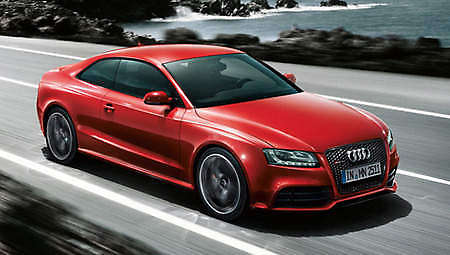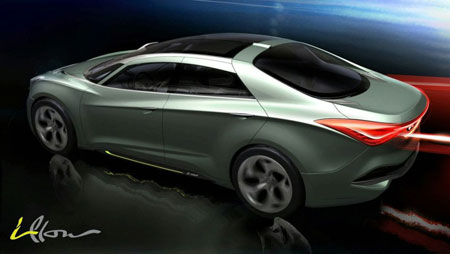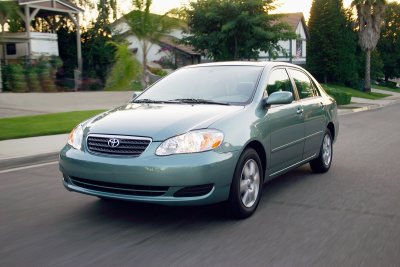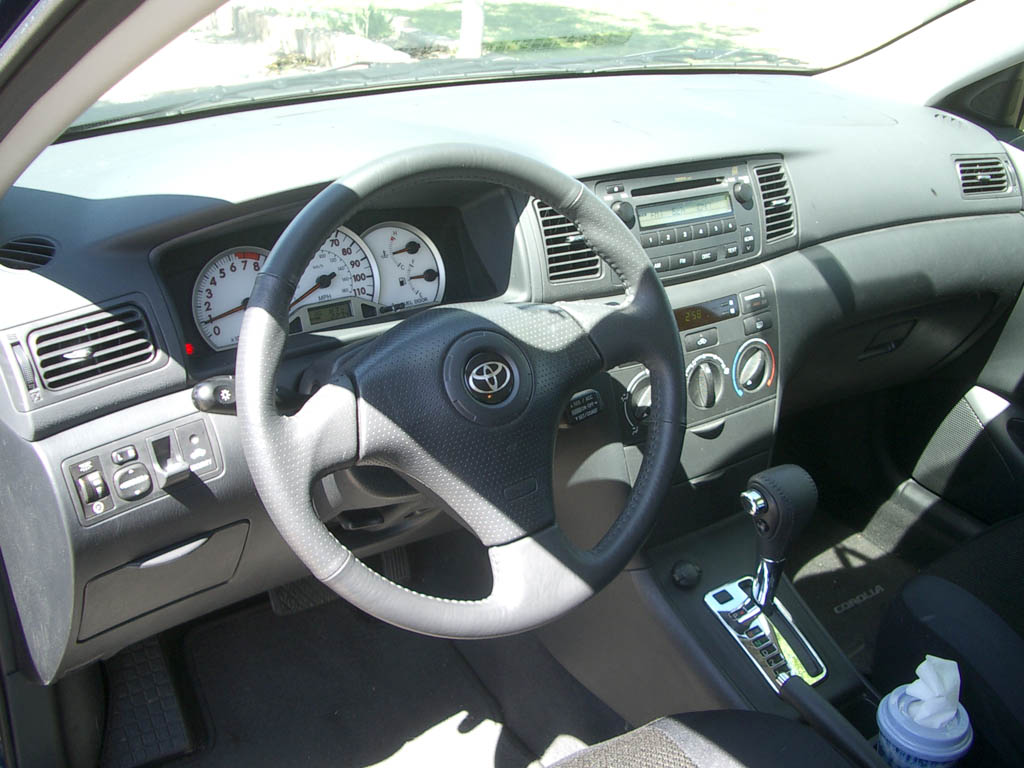
With performance-inspired, aggressive and sleek styling, Kia Motors America (KMA) today globally debuted the 2010 Forte Koup production vehicle during a press conference at the 2009 New York International Auto Show (NYIAS). Joining the Forte family in the KMA lineup, the company’s first-ever two-door coupe embodies the brand’s current bold design direction first seen on the concept version of the Soul urban passenger vehicle in 2006.
“On the heel of the introductions of the Soul and Forte sedan, Forte Koup represents the next exciting step in the transformation of Kia design and offers a blend of sporty and emotional appeal,” said Michael Sprague, vice president, marketing, KMA. “We believe our new design evolution coupled with standard Kia value and safety features will continue to attract customers to the Kia brand.”

Curb Appeal
Based on the design styling of the KOUP concept vehicle shown during last year’s show, Forte Koup’s fluid lines and balanced proportions, meant to evoke an emotional driving experience, closely mirror the powerful design cues of the concept vehicle and offer the same aggressive stance with swept-back wrap-around headlamps, aggressive air intakes and a low, sleek profile. Available in two trim levels (EX and SX), Forte Koup offers a muscular yet sophisticated design. Even from behind, Forte Koup exudes attitude with slim, wrapped tail lights, duel exhaust outlets and a rear diffuser.

Athleticism and convenience are standard for the Forte Koup EX with body-color bumpers, power heated outside mirrors with integrated turn signals and 16-inch alloy wheels outfitted with P205/55R16 tires. The SX trim offers an even sportier profile with 17-inch alloy wheels paired with P215/45R17-sized premium tires.
Smooth and Sporty Ride
With a wheelbase of 104.3 inches, an overall length of 176.4 inches, an overall width of 69.5 inches and overall height of 55.1 inches, Forte Koup is slightly shorter in length and height than the Forte sedan, but still boasts comfortable seating for up to five passengers. Koup’s lowered stance provides better aerodynamics for those looking for a more exciting ride.
The Kia-engineered body achieves high torsional stiffness giving Forte Koup better handling, smoother ride quality and greater refinement than its competitors, with a specially tuned suspension developed to optimize responsive handling on curvy roads. Additional refinements are fitted throughout to help ensure a comfortable ride with good noise, vibration and harshness (NVH) reduction qualities.

Built on a front-wheel-drive unibody frame, Forte Koup utilizes the same platform as the sedan, with an independent front suspension with MacPherson struts and stabilizer bar and a torsion beam rear suspension with struts and coil springs. This combination helps provide the optimal balance of handling and comfort. An engine-speed-sensitive, power-assisted rack-and-pinion steering system adds the finishing touch for precise handling to help provide the most advantageous amount of assist for varying road conditions. The SX trim also comes with a sport-tuned suspension providing for a firmer ride with reduced body roll and improved handling.
Lively Performance
More powerful than the Honda Civic Coupe, Ford Focus Coupe or Chevrolet Cobalt Coupe, Forte Koup EX is driven by a 2.0-liter DOHC four-cylinder engine, producing 156 horsepower and 144 pound-feet of torque that features Continuously Variable Valve Timing (CVVT) and multi-port electronic fuel injection, both of which provide for greater performance and fuel economy. The SX features an upgraded 2.4-liter inline four-cylinder engine, also with CVVT, which delivers 173 horsepower and 168 pound-feet of torque, more than the Scion tC. Expanding upon the dynamic look and feel, Forte Koup’s engine hums powerfully courtesy of the dual exhaust outlets outfitted on both EX and SX trims.
Like the Forte sedan, two transmission options are available for both 2010 Forte Koup models: a standard five-speed manual transmission or an optional electronically controlled four-speed automatic transmission (EX models). The SX model features a standard six-speed manual transmission and an optional five-speed automatic transmission with Sportmatic®.
Forte Koup fuel economy is not sacrificed for sportiness, as both engines deliver at least 31 miles per gallon (highway). The 2.0-liter engine offers 25/34 mpg (city/highway) when mated with either the five-speed manual transmission or the optional four-speed automatic. Those opting for the more powerful 2.4-liter engine also can expect an economical 22/32 mpg with the six-speed manual and 23/31 when paired with the five-speed automatic transmission.
Striking Interior
With a surprisingly spacious interior for a two-door coupe, Forte Koup provides a comfortable 90.7 cubic feet of interior volume, larger than the 2009 Honda Civic Coupe, Scion tC or Chevrolet Cobalt Coupe. Driver and passengers have an impressive 38.7 inches of headroom and 43.6 inches of legroom in the front seats and 35.3 inches of headroom and 33.9 inches of legroom in the rear seats. Trips to the beach and weekend getaways will be a breeze with ample cargo space of 12.6 cubic feet, enough to accommodate luggage and belongings of all passengers.
Forte Koup continues the luxury treatment with a host of standard interior features, beginning with supportive, nicely appointed sport seats outfitted with more aggressive bolsters on the seat cushion and seat back for optimal comfort. Air conditioning, a driver’s seat height adjuster, adjustable rear seat headrests, tilt steering column, rear defroster, center console with dual cup holders, map lamps and variable intermittent wipers are also just some of the myriad amenities standard on every vehicle. Also standard on all models are power windows, power door locks with remote keyless entry and cruise control with steering wheel-mounted controls for added convenience.
Progressing to the SX trim offers additional standard touches such as: unique sport cloth seats with vibrant red stitching, a tilt and telescoping steering column, leather-wrapped steering wheel and shift knob, metal pedals and metal finish trim and a Supervision™ gauge cluster with trip computer further enhancing its energetic personality. Both EX and SX trims also offer an optional power moonroof.
An optional Leather Package is available for both EX and SX trims. When combined with the EX trim the Leather Package adds leather seats, leather-wrapped steering wheel and shift knob and heated seats. When paired with the SX trim it includes leather and heated seats in addition to the standard leather-wrapped steering wheel and shift knob.
Superior Sound
For inside entertainment while cruising down the road, Forte Koup comes with a standard six-speaker AM/FM/CD/MP3 audio system outfitted with SIRIUS Satellite Radio capabilities with three months complimentary service¹. For added listening convenience steering wheel-mounted audio controls also come standard on all models, as well as USB and auxiliary input jacks in the center console with full iPod® and MP3 controllability via the audio head unit. Standard Bluetooth® connectivity enables hands-free operation for compatible cell phones.
Standard Kia Motors Safety
Forte Koup offers a class-leading level of standard safety equipment, with features such as dual front advanced airbags, front seat-mounted and side curtain airbags, four-wheel disc brakes with an antilock brake system (ABS), electronic stability control (ESC) and a tire pressure monitoring system (TPMS).
Industry-Leading Warranty
Like all Kia models, Forte Koup is covered by a comprehensive warranty program, which offers unprecedented consumer protection. Included in this program are a 10-year or 100,000-mile limited powertrain warranty, a five-year or 60,000-mile limited basic warranty, and a five-year or 100,000-mile anti-perforation warranty. A five-year/60,000-mile roadside assistance plan is also part of the comprehensive coverage program.


























































